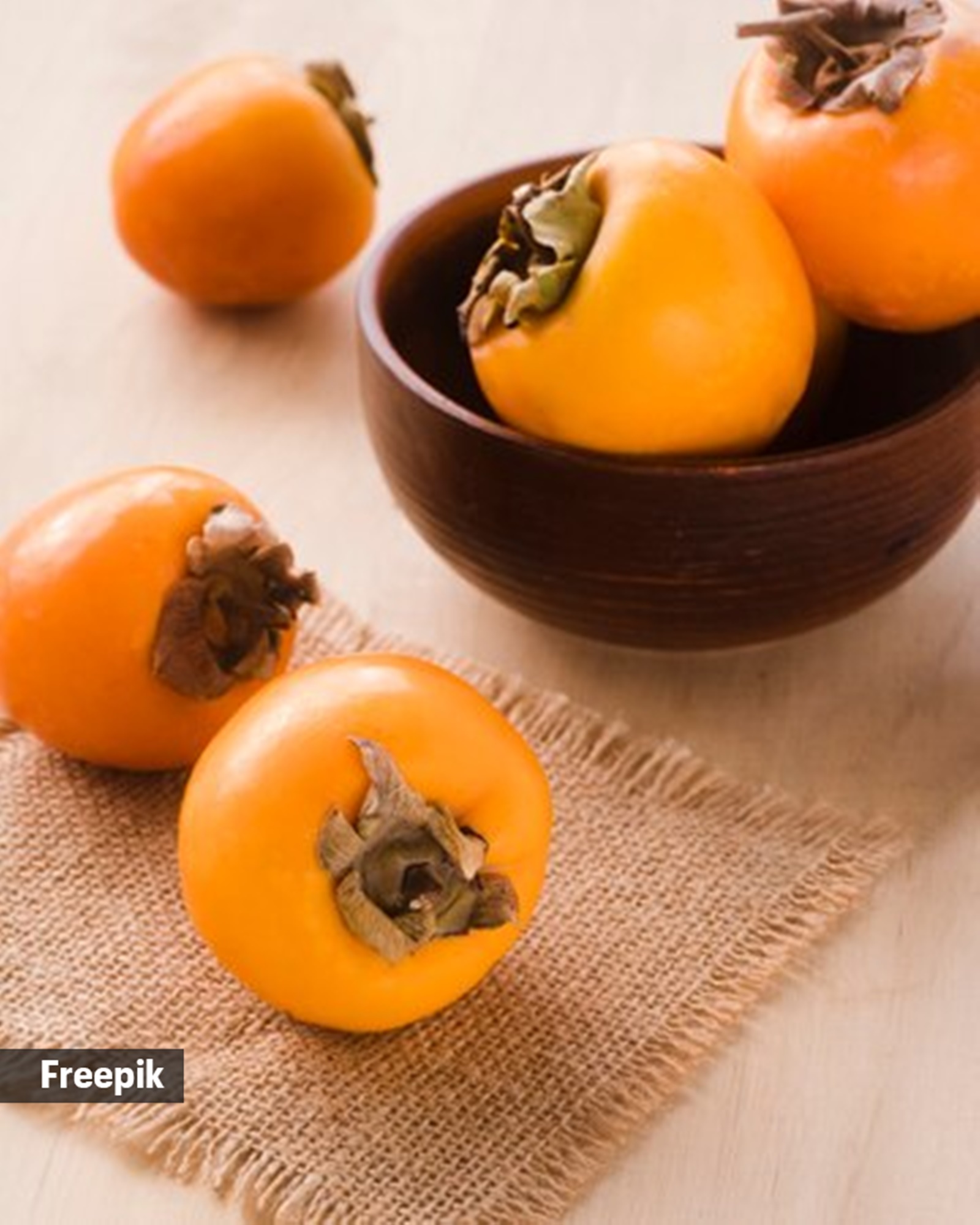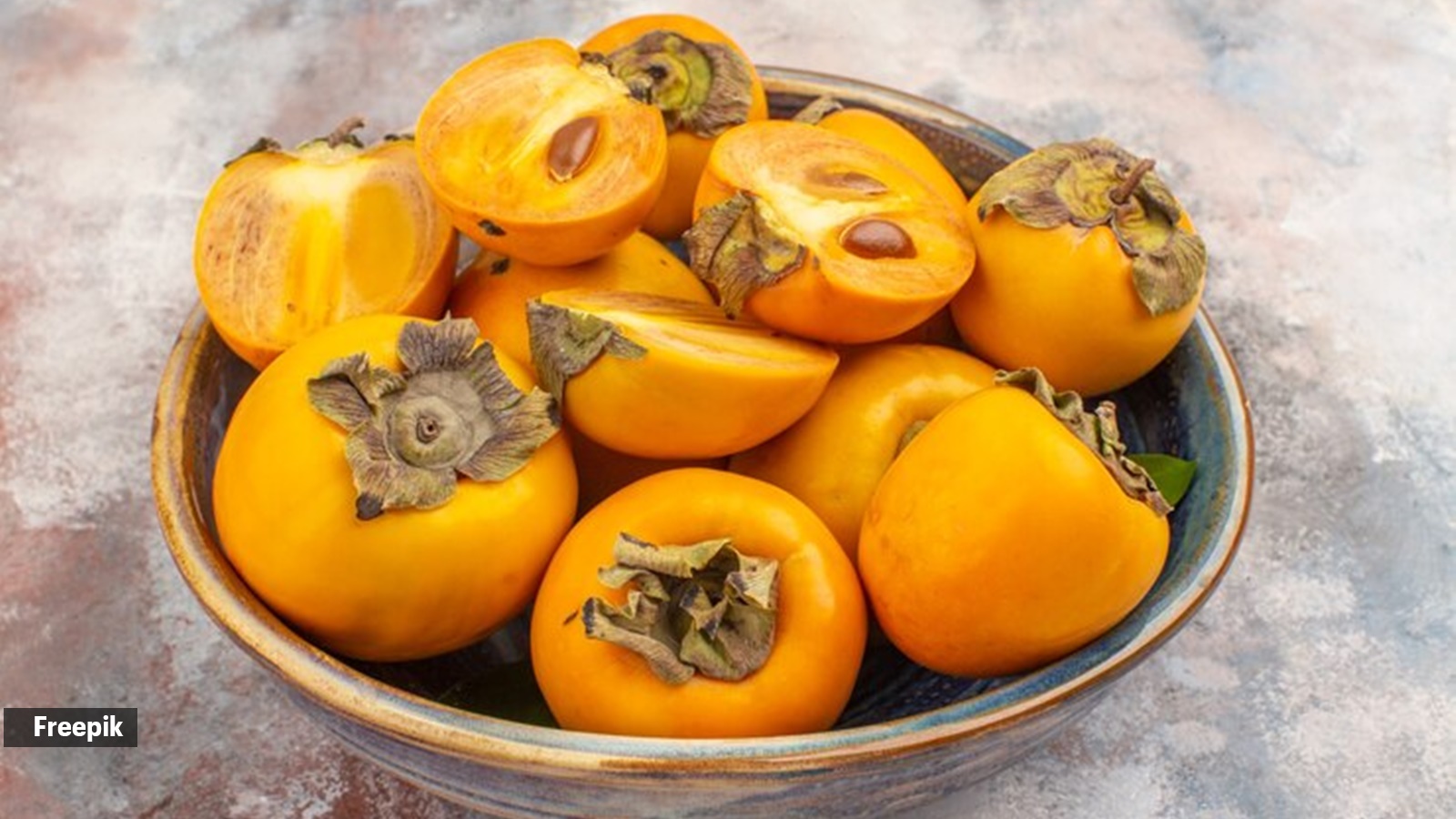Bollywood actress Katrina Kaif recently revealed in a candid interview that she starts her mornings with a delicious and nutritious fruit — persimmon.
This lesser-known vibrant orange fruit, packed with health benefits, is grown indigenously in the states of Jammu and Kashmir, Himachal Pradesh, Tamil Nadu and Uttarakhand. It is known for its sweet and slightly tangy flavour, and is a rich source of vitamins and minerals.
Persimmons are particularly high in vitamin C, which helps boost the immune system and promotes healthy skin. Additionally, they contain vitamin A, important for vision and immune function, as well as vitamin E, an antioxidant that supports skin health. These fruits also provides dietary fibre, aiding in digestion and promoting a feeling of fullness.
Kanikka Malhotra, consultant dietician and diabetes educator says, “Persimmons also known as amarfal or khurma in Hindi are famous for their sweet, honey-like flavour.” These fruits are also considered to be a nutritional powerhouses, she adds, with the ability to benefit your overall health.
Nutritional profile of persimmon
A persimmon packs a lot in a seemingly small package. Here’s a detailed breakdown of the nutrients you get per 100 grams:
Vitamins
Minerals


How is persimmon beneficial for health?
Persimmons go beyond their delightful taste, Malhotra agrees. Here’s a look at some of the key health benefits they offer:
Sharpens Vision: Vitamin A and antioxidants like lutein and zeaxanthin protect your eyes from age-related macular degeneration.
Strengthens Immunity: Vitamin C content helps boost your immune system, making you more resistant to infections.
Aids Digestion: The high fibre content promotes regularity and keeps your gut healthy.
Supports Heart Health: The combination of fiber, antioxidants, and potassium can help maintain healthy blood pressure and cholesterol levels, reducing the risk of heart disease.
May Benefit Blood Sugar Control: Fibre helps regulate blood sugar release, potentially aiding in diabetes management.
Additionally, while persimmons benefit everyone, they might be particularly helpful for:
People with Eye Concerns: The presence of vitamin A and specific antioxidants makes them valuable for maintaining healthy vision.
Individuals at Risk of Heart Disease: The fibre, antioxidants, and potassium content contribute to a heart-healthy diet.
Those Focusing on Gut Health: The high fibre content also promotes a healthy digestive system.
Best ways to consume persimmons
Persimmons are a versatile ingredient! Here are some ideas to enjoy their goodness while preserving their nutrients, as suggested by Malhotra:
Fresh and Simple: Enjoy them sliced in salads, yoghurt parfaits, or just on their own as a refreshing snack.
Sweet Treats: Bake them into muffins, or pies for a burst of sweetness and antioxidants. Because of its exquisite flavor, persimmon is commonly used in jellies, drinks, pies, curries, and puddings all across the world.
Dried Delights: Dehydrated persimmons are a concentrated source of nutrients and a delicious on-the-go snack.

Sarah Carter is a health and wellness expert residing in the UK. With a background in healthcare, she offers evidence-based advice on fitness, nutrition, and mental well-being, promoting healthier living for readers.








